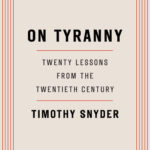Source: The Two Clashing Meanings of ‘Free Speech’ | The Atlantic, by Teresa M. Bejan
there is a more fundamental conflict between two, very different concepts of free speech at stake. The conflict between what the ancient Greeks called isegoria, on the one hand, and parrhesia, on the other, is as old as democracy itself. Today, both terms are often translated as “freedom of speech,” but their meanings were and are importantly distinct. In ancient Athens, isegoria described the equal right of citizens to participate in public debate in the democratic assembly; parrhesia, the license to say what one pleased, how and when one pleased, and to whom.
…
isegoria was fundamentally about equality, not freedom. … Its competitor, parrhesia, was more expansive. … The practitioner of parrhesia (or parrhesiastes) was, quite literally, a “say-it-all.”
…
If isegoria was fundamentally about equality, then, parrhesia was about liberty in the sense of license—not a right, but rather an unstable privilege enjoyed at the pleasure of the powerful.
the genius of the First Amendment lies in bringing isegoria and parrhesia together, by securing the equal right and liberty of citizens not simply to “exercise their reason” but to speak their minds. It does so because the alternative is to allow the powers-that-happen-to-be to grant that liberty as a license to some individuals while denying it to others.
When the rights of all become the privilege of a few, neither liberty nor equality can last.
